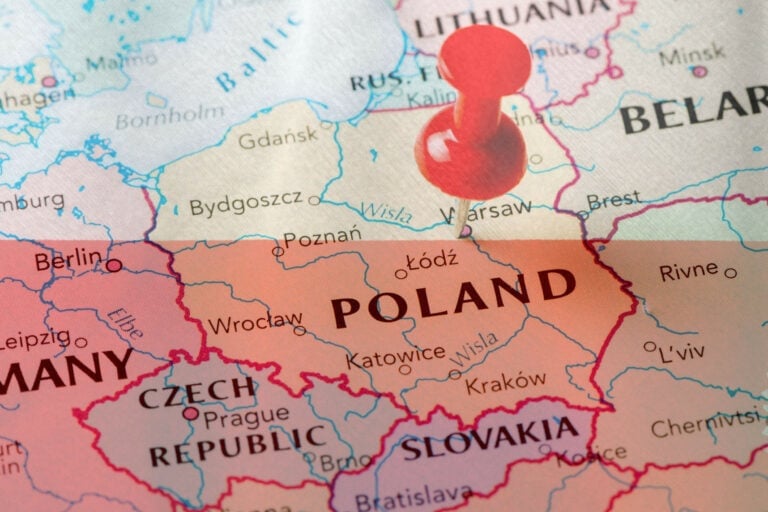June 19, 2025 | 17:08 GMT +7
June 19, 2025 | 17:08 GMT +7
Hotline: 0913.378.918
June 19, 2025 | 17:08 GMT +7
Hotline: 0913.378.918

The recent bird flu and Newcastle disease outbreaks have also exposed a long-standing issue of overcapacity in Poland's poultry slaughtering and processing segment. Photo: Canva.
Two new outbreaks of Newcastle disease, registered at the end of May, will cost farmers nearly 1.5 million heads, the Polish veterinary service estimated. In particular, 1.35 million hens were culled after the disease was registered at an industrial farm in the Mazovian province, which was officially acknowledged as the largest outbreak this year.
Since the beginning of the year, 30 Newcastle outbreaks have been registered in Poland, with the total loss count reaching 3.5 million heads of poultry.
Poultry farmers and processors report heavy losses. For instance, Wipasz, a prominent poultry manufacturer, saw its supply chain disrupted after the first outbreak was discovered in the Podlaskie province, where some of the company’s capacities are located, Wojciech Ściana, deputy president, told Farmer, a local news outlet.
The outbreaks led to production downtime and also problems on the consumer side.
“The biggest problem is the loss of customer trust – this causes the entire supply chain to fall apart,” Ściana said.
Issue of overcapacity
The recent bird flu and Newcastle disease outbreaks have also exposed a long-standing issue of overcapacity in Poland’s poultry slaughtering and processing segment. As explained by Ściana, over the past few years, processing capacities in the country have grown ahead of the supply of broilers, which eventually drove the industry to imbalance.
“When a disease strike and natural limitations related to the availability of poultry emerge, this escalates the problem,” Ściana said, adding that this results in long downtimes, which could affect all slaughterhouses and processors in the country.
Long downtimes, in turn, hamper business profitability, undermining the ability of Poland’s poultry processors to invest in their operations. “Competitiveness is the biggest challenge for us today, as it has been getting weaker over the last 5 or 6 years,” Ściana admitted, adding that the key target for the company now is only to stay afloat.
A new threat on the horizon
In the meantime, Poland’s poultry farmers fear that the signing of the Mercosur deal, a trade agreement between the European Union and Mercosur countries, will deal another heavy blow to the already troubled industry. The deal is expected to increase competition from South American poultry producers, potentially leading to a further decrease in market share for Polish farmers. According to Ściana, as the leading exporter in the European market, Poland will suffer the most.
Poland is steadfast in its belief that to gain access to the European poultry market, importers must adhere to the same high standards as European farmers, Ściana emphasised.
(Poultryworld)

(VAN) Extensive licensing requirements raise concerns about intellectual property theft.

(VAN) As of Friday, a salmonella outbreak linked to a California egg producer had sickened at least 79 people. Of the infected people, 21 hospitalizations were reported, U.S. health officials said.

(VAN) With the war ongoing, many Ukrainian farmers and rural farming families face limited access to their land due to mines and lack the financial resources to purchase needed agricultural inputs.

(VAN) Vikas Rambal has quietly built a $5 billion business empire in manufacturing, property and solar, and catapulted onto the Rich List.

(VAN) Available cropland now at less than five percent, according to latest geospatial assessment from FAO and UNOSAT.

(VAN) Alt Carbon has raised $12 million in a seed round as it plans to scale its carbon dioxide removal work in the South Asian nation.